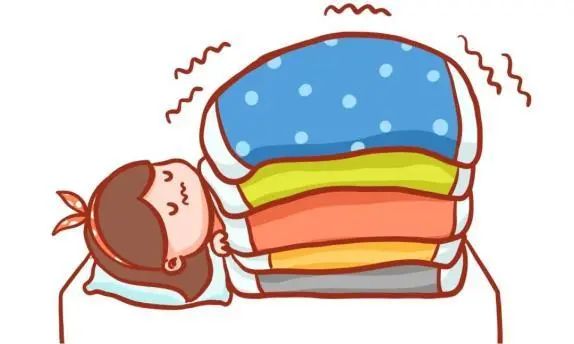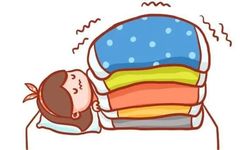Spleen and stomach yang deficiency refers to the deficiency of the yang qi of the spleen and stomach.
Due to spleen yang deficiency, the stomach fails to warm, leading to symptoms of deficiency cold and stagnation of water and fluids, including symptoms of spleen yang deficiency and stomach yang deficiency.
“
Spleen Yang Deficiency
When the stomach yang is insufficient, it leads to symptoms of stomach yang deficiency; spleen qi deficiency often presents with poor appetite, a feeling of fullness after eating little, and loose stools. If accompanied by coldness in the limbs and a fear of cold, it indicates spleen yang deficiency. The pulse is deep and slow, and the tongue coating is white and slippery;

“
Stomach Yang Deficiency
After consuming cold and cool foods, the epigastric area feels cold, leading to cramping pain, cold pain, or dull pain, accompanied by sour regurgitation, cold hands and feet, and loose stools.


Next, we will explain the symptoms and causes of spleen and stomach yang deficiency from a TCM perspective.
In TCM, the spleen is responsible for transformation and transportation, governs the muscles, and ascends the clear qi, while the stomach is responsible for receiving and digesting food and fluids.
With spleen and stomach yang deficiency, the ability of the stomach to receive and digest food decreases, leading to poor appetite, abdominal distension, and cold pain in the abdomen. Eating warm foods alleviates the pain, while cold foods exacerbate it, and diarrhea may occur with undigested food.

The spleen’s ability to produce essential fluids decreases, leading to symptoms of fatigue, pale complexion, emaciation, and dizziness.

If the spleen cannot transform and transport fluids, water and dampness accumulate, leading to facial and lower limb edema, and if dampness accumulates into phlegm, it may cause cough with abundant white phlegm.

If the spleen loses its ability to govern, symptoms such as blood in stools, menorrhagia, hematuria, hematemesis, and skin purpura may occur, with a pale and swollen tongue and a deep and slow pulse.

We can simply assess whether we have spleen and stomach yang deficiency through changes in our body in daily life.
Excessive Salivation During Sleep
Individuals with spleen deficiency may also experience memory decline, dizziness, and poor sleep quality.
Many people drool while sleeping, which is also related to spleen deficiency.

Weight Loss or Obesity
Symptoms such as fatigue, excessive sweating, and shortness of breath may occur, along with heavy eyelids or difficulty lifting the upper eyelids, and lower limb edema.
Being too thin is due to the spleen’s inability to transport nutrients effectively, leading to poor absorption.
Conversely, due to spleen deficiency causing dampness, the body may accumulate fluids. Spleen dampness often presents as abdominal obesity.

Constipation or Diarrhea
Almost all gastrointestinal diseases can occur or be accompanied by spleen deficiency. Spleen deficiency generally leads to diarrhea, but constipation may also occur due to insufficient gastrointestinal motility.

Stomach Pain, Acid Reflux, and Bloating
Individuals with poor gastrointestinal health are prone to stomach pain, acid reflux, bloating, borborygmi, decreased appetite, nausea, and vomiting.
Excessive stomach acid often leads to acid reflux, with a sensation of acid rising from the stomach or fullness, and congestion of the gastric mucosa due to excessive acid can cause a burning sensation.

Bad Breath
If the gastrointestinal tract is not functioning properly, it will inevitably reflect issues in the upper digestive tract, leading to bad breath.
Foul odors caused by bacteria, such as bad breath not related to periodontal disease, may indicate gastrointestinal abnormalities.





